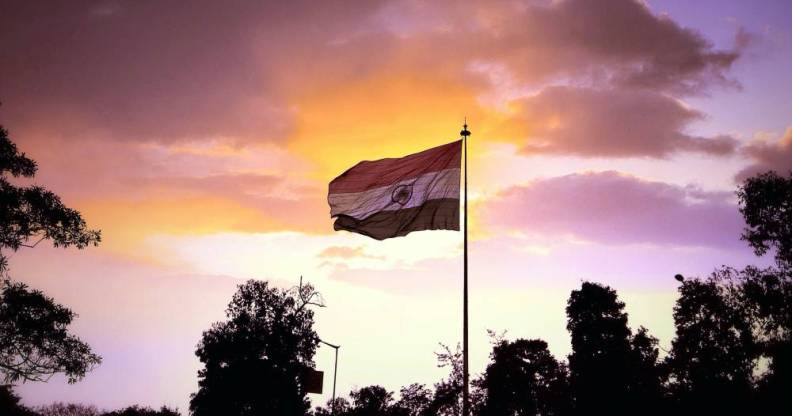Man and his son accused of brutally killing co-worker for calling him gay

India still trails behind much of the world when it comes to LGBTQ+ rights and equality. (Envato Elements)
A father and his son have been arrested on suspicion of killing a co-worker and dumping his body near a motorway in the city of Nuh, India, after he allegedly directed a homophobic slur at one of them.
The two suspects were named as Suresh Kumar and his son Raj Kumar, of Hisar’s Kanwari village, on Monday (1 January).
According to Hindustan Times, the elder Kumar confessed to the crime and told police he and his son killed the driver after he called him “gay”.
Local police found the body of a man, identified as 35-year-old Sombir, abandoned near Ghuspaithi village adjoining the KMP expressway on 29 December 2022.
Police said Sombir was a native of Birahi Khurd village in the Bhiwani district. Sombir worked alongside Suresh Kumar as a driver for a private company in Gurugram, according to officials.
Suresh claimed that Sombir had ‘defamed’ him by calling him gay. This led to him hatching a plan with his son to get back at him.
The Kumars told police that they forcibly took Sombir in a car on 28 December, hit him with stones and strangled him, before dumping his body in an unmarked grave and fleeing the scene.
The duo was arrested on New Year’s Eve in Ajijpur village in Uttar Pradesh’s Mathura. Police added they appeared before a court and spent two days on police remand.
LGBTQ+ rights in India
India still trails behind much of the world when it comes to LGBTQ+ rights and equality, however, in recent years it has made improvements.
In 2018, Section 377 of the Indian Penal Code, a colonial-era law that criminalised “carnal intercourse against the order of nature”, was ruled unconstitutional in a major win for LGBTQ+ rights.
The Indian Supreme Court noted: “Respect for individual choice is the very essence of liberty under law and, thus, criminalising carnal intercourse under Section 377 IPC is irrational, indefensible and manifestly arbitrary.”
Trans visibility is also breaking through in India, with politician Bobi winning a major Delhi region for her Aam Aadmi Party at the end of last year.
The victory was a huge step for LGBTQ+ rights and representation in India where same-sex marriage is still forbidden, despite routine attempts by activists to reverse the government’s policy.
On 25 November last year, a Supreme Court case involving two LGBTQ+ couples urging the government to acknowledge the ban as unconstitutional was heard.
Lead petitioners Supriyo Chakraborty and Abhay Dange argued that not extending the rights of marriage to LGBTQ+ couples is an affront to their human rights.
How did this story make you feel?

